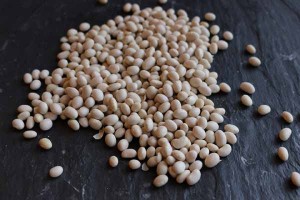
More evidence that low-calorie sweeteners are bad for your health
Studies show that artificial sweeteners can raise the risk of hypertension, metabolic syndrome, type 2 diabetes and heart disease, including stroke.

We need calcium to stay healthy.
Around 99% of the body’s calcium is stored in bones and teeth for structural support. Calcium is also important for regulating muscle contractions, including heartbeat and ensuring that our blood clots normally.
It is thought that calcium can help lower high blood pressure and protect against colon and breast cancer.
An average adult needs a minimum of 700 mg a day and more optimally around 1,000 -1,300 mg of calcium daily. This figure is slightly higher for lactating and pregnant women.
Dairy products are traditionally considered the ‘best’ source of this essential mineral. But what if you don’t want to eat, or can’t tolerate dairy?
Never fear. Calcium is abundant in many foods and there are lots of dairy-free ways to get adequate calcium in your diet. Try these alternatives:
White beans There is evidence that white beans such as flageolet, haricot (navy), or butter beans provide more bioavailable calcium than red beans such as kidney beans (around 240g per 100g (3 oz) serving). This is because they contain fewer substances that inhibit iron absorption. Black eyed peas are a good source of calcium. In general, beans are also a good source of low fat protein and also contain potassium, folate and other helpful nutrients.
Broccoli Instead of boiling it steam your broccoli to retain essential nutrients such as calcium – around 47mg per 100g (3 oz) serving. Or just eat it raw in salads or juice it for an extra nutrient boost.
Molasses One tablespoon of blackstrap molasses contains around 17 mg of calcium (and around 3.5 mg iron). Try using molasses to sweeten porridge or in baking, or just have a spoonful a day. It’s a great alternative to sugar and can help boost your calcium and iron intake.
Oatmeal A heart-healthy way to start your day and it also provides a useful amount of calcium (80mg per 100g) as well as soluble fibre.
Salmon Fresh salmon contains calcium at around 60mg per 100g (3 oz) serving, but if this option seems too expensive for everyday, a useful compromise is tinned (canned) salmon which usually contains small soft bones which can be mashed up along with the meat. Because of the edible bones tinned salmon contains around 240mg of calcium per 100g serving. For the most sustainable fresh salmon option, choose wild Alaskan salmon, which is lower in contaminants and sustainably sourced.
Sardines Being a small fish sardines are less likely than larger fish to contain marine contaminants like mercury. They are rich in omega-3 fatty acids and vitamin D, but can also provide as much as 320 mg of calcium per 3 ounces.
Dried figs A great way to satisfy your sweet tooth, figs are rich in antioxidants, fibre and have around 100 mg of calcium per 8 dried fruits. Dried apricots, dates and raisins are also good sources of calcium and a variety of trace elements.
Leafy greens Dark green leaves such as kale, spinach, bok choi, watercress, mustard and turnip greens are high in calcium – from 30-40 per 30g (1 oz) – as well as essentials like folate and antioxidants. Eat raw or lightly sautéed.
Orange juice Many fruits, including oranges, contain calcium, about 60mg per fruit. Enjoy a glass of freshly squeezed orange juice with meals such as salads. And not only will you get some extra calcium, you will also get the vitamins C necessary to help absorb the iron in your greens.
Tofu Because it is prepared with calcium sulphate, one 30g (1 oz) portion of tofu contains around 400mg calcium. Look for fermented tofu which has a higher level of antioxidants and is easier to digest. Before you incorporate large amounts of tofu into your diet, consider the health implications.
Plant-based milks Soya, almond and rice milks are not naturally high in calcium, but many manufacturers do fortify them to bring levels up to those comparable with dairy milk.
Fortified cereals Although fortification is controversial, ready-to-eat cereals can provide from 236 to 1043 mg of calcium. Avoid those that are high in sugar or salt and don’t rely on any fortified food as your sole source of dietary calcium.

Please subscribe me to your newsletter mailing list. I have read the
privacy statement